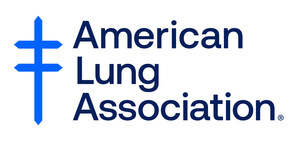American Lung Association campaign raises awareness about RSV and educates parents and caregivers about the newly ACIP recommended preventive antibody
CHICAGO, Oct. 11, 2023 /PRNewswire/ -- In fall of 2022, the United States saw an early and significant spike in cases of Respiratory Syncytial Virus, or RSV, which is the leading cause of hospitalizations in all infants. Today, the American Lung Association launched a campaign to help inform parents of infants and young children, as well as caregivers, about RSV and the new preventative options that can protect their children.
RSV is a common respiratory virus that can infect people of all ages. RSV is so common that nearly 100% of children have been infected with the virus by age two. Each year, as many as 80,000 children younger than five are hospitalized due to RSV in the United States. The peak season for RSV infection in the United States is fall through spring.
On August 3, 2023, the Advisory Committee on Immunization Practices (ACIP) of the Centers for Disease Control and Prevention (CDC) recommended a preventative monoclonal antibody (nirsevimab) to help prevent severe RSV illness in infants and some young children at increased risk.
Here are answers to four common questions about how to help prevent RSV in babies:
- Is nirsevimab a vaccine? No, it is a long-acting monoclonal antibody injection that provides an extra layer of defense to help prevent RSV disease. The protection provided by this preventative antibody is called passive immunity because external antibodies are given to help protect against RSV. A vaccine stimulates the body's immune system to make antibodies called active immunization to defend itself.
- What are monoclonal antibodies? Monoclonal antibodies are man-made proteins that mimic the immune system's naturally produced antibodies to help fight off harmful viruses. Monoclonal antibodies are not a treatment for children who are already sick with RSV. They work quickly because the body does not need to build an immune response.
- Who can get the new preventive antibody? This new preventive monoclonal antibody is recommended for all infants younger than 8 months in their first RSV season and for some young children between 8 and 19 months who may be at high risk entering their second RSV season.
- How long does protection last? Children receive one dose of the preventative antibody that can provide protection for five months or the average length of an RSV season.
- What else can people do to help prevent RSV? Parents and caregivers are also encouraged to follow everyday preventative actions like:
-
- Avoiding close contact with sick people
- Covering your coughs and sneezes with a tissue
- Washing your hands often with soap and water for 20 seconds
- Avoiding kissing them while you're sick
About RSV
RSV is spread from person to person through close contact with someone who is infected via secretions from coughing and sneezing or touching objects such as toys or doorknobs that have the virus on them. Most people, including infants, develop only mild symptoms similar to that of a common cold but for some, it can be severe and even life threatening. If you have contact with an infant or young child, especially if they were born prematurely, are very young, have chronic lung or heart disease, a weakened immune system, or have neuromuscular disorders, you should take extra care to keep the infant healthy.
It's important to know the signs and symptoms that may indicate worsening illness and when to contact your child's healthcare provider. Symptoms of RSV include:
- Mild cold symptoms, including congestion, runny nose, fever, cough and sore throat.
- Very young infants may be irritable, fatigued and have feeding difficulties.
- A barking or wheezing cough can be one of the first signs of a more serious illness.
· Infants with severe RSV will have short, shallow and rapid breathing. This can be identified by "caving-in" of the chest in between the ribs and under the ribs (chest wall retractions), "spreading-out" of the nostrils with every breath (nasal flaring), and abnormally fast breathing. In addition, their mouth, lips and fingernails may turn a bluish color due to lack of oxygen.
When to Call Your Doctor: You should call your pediatrician if your infant has poor appetite or decrease in activity level, cold symptoms that become severe or a shallow cough that continues throughout the day and night. Seek emergency care if your child is having trouble breathing.
This fall, the American Lung Association is partnering with Sanofi on a campaign to help educate expectant parents as well as parents and caregivers of infants and toddlers, about the symptoms of RSV, and steps they can take to protect their children from severe RSV illness. For more information and to learn steps to prevent severe illness, visit Lung.org/RSV.
About the American Lung Association
The American Lung Association is the leading organization working to save lives by improving lung health and preventing lung disease through education, advocacy and research. The work of the American Lung Association is focused on four strategic imperatives: to defeat lung cancer; to champion clean air for all; to improve the quality of life for those with lung disease and their families; and to create a tobacco-free future. For more information about the American Lung Association, which has a 4-star rating from Charity Navigator and is a Platinum-Level GuideStar Member, call 1-800-LUNGUSA (1-800-586-4872) or visit: Lung.org. To support the work of the American Lung Association, find a local event at Lung.org/events.
American Lung Association • 55 W. Wacker Drive, Suite 1150 • Chicago, IL 60601
1331 Pennsylvania Ave. NW, Ste. 1425 North • Washington, D.C. 20004
1-800-LUNGUSA (1-800-586-4872) Lung.org
CONTACT:
Jill Dale | American Lung Association
P: 312-801-7629E: [email protected]
SOURCE American Lung Association

WANT YOUR COMPANY'S NEWS FEATURED ON PRNEWSWIRE.COM?
Newsrooms &
Influencers
Digital Media
Outlets
Journalists
Opted In





Share this article